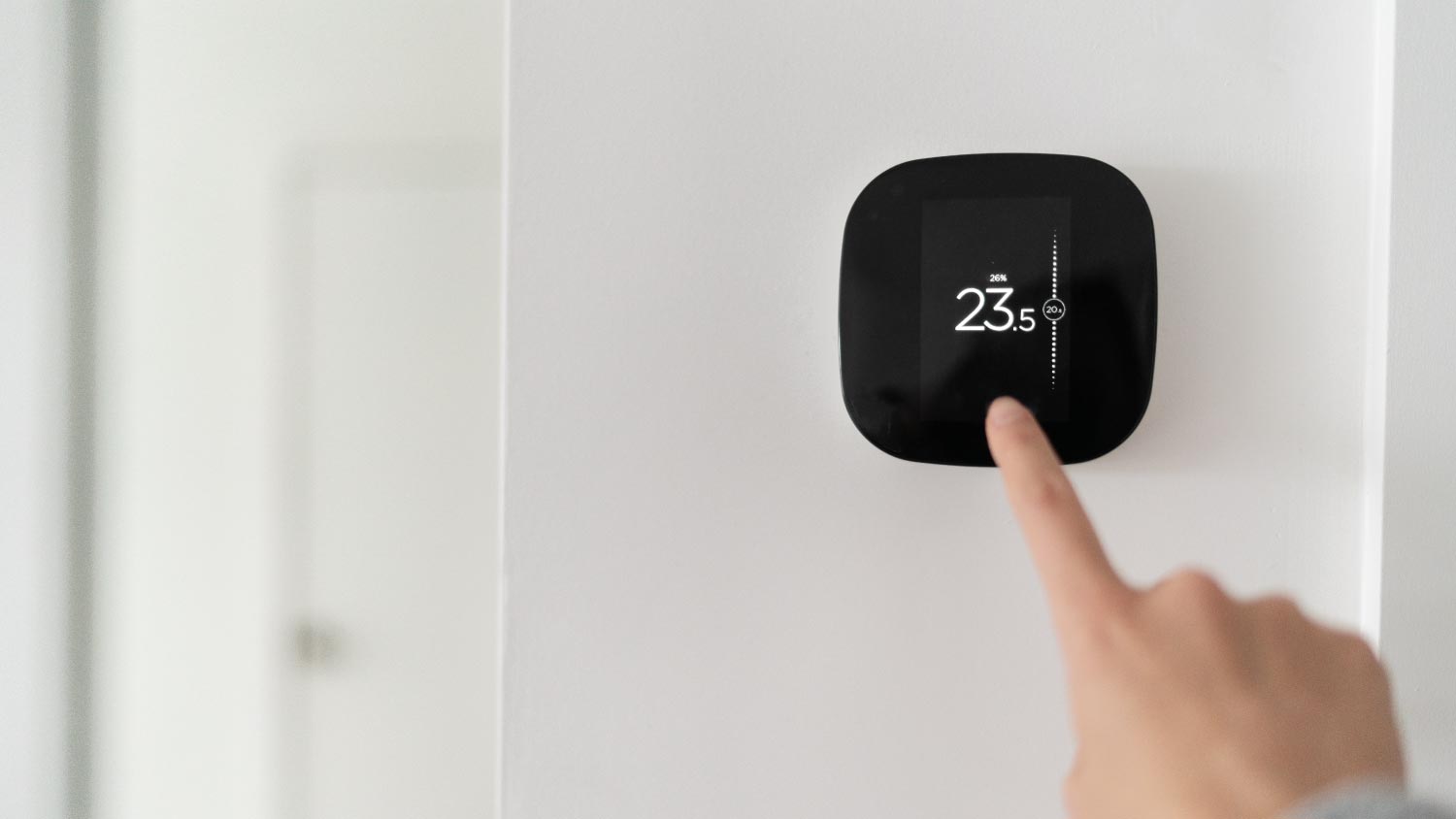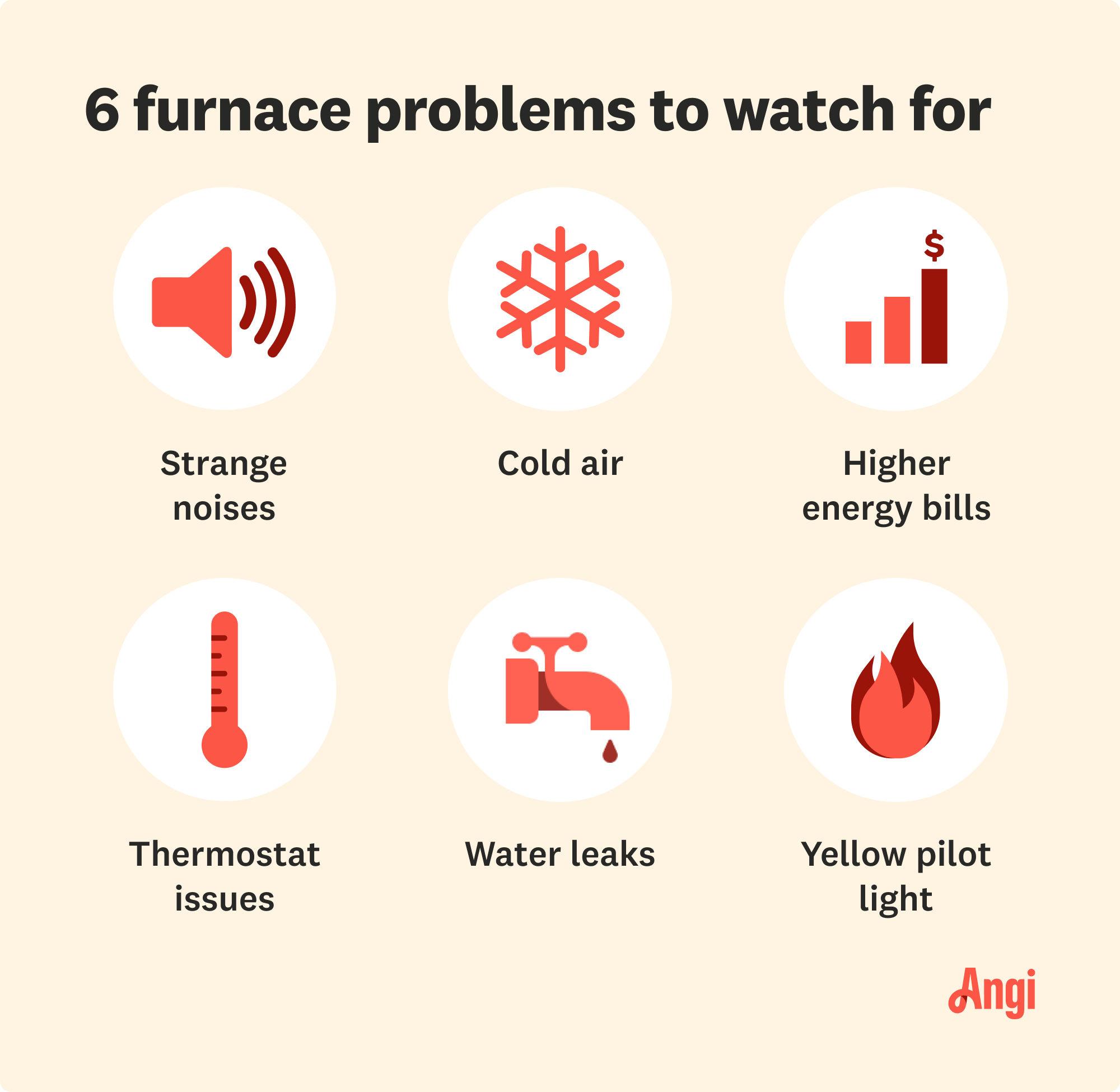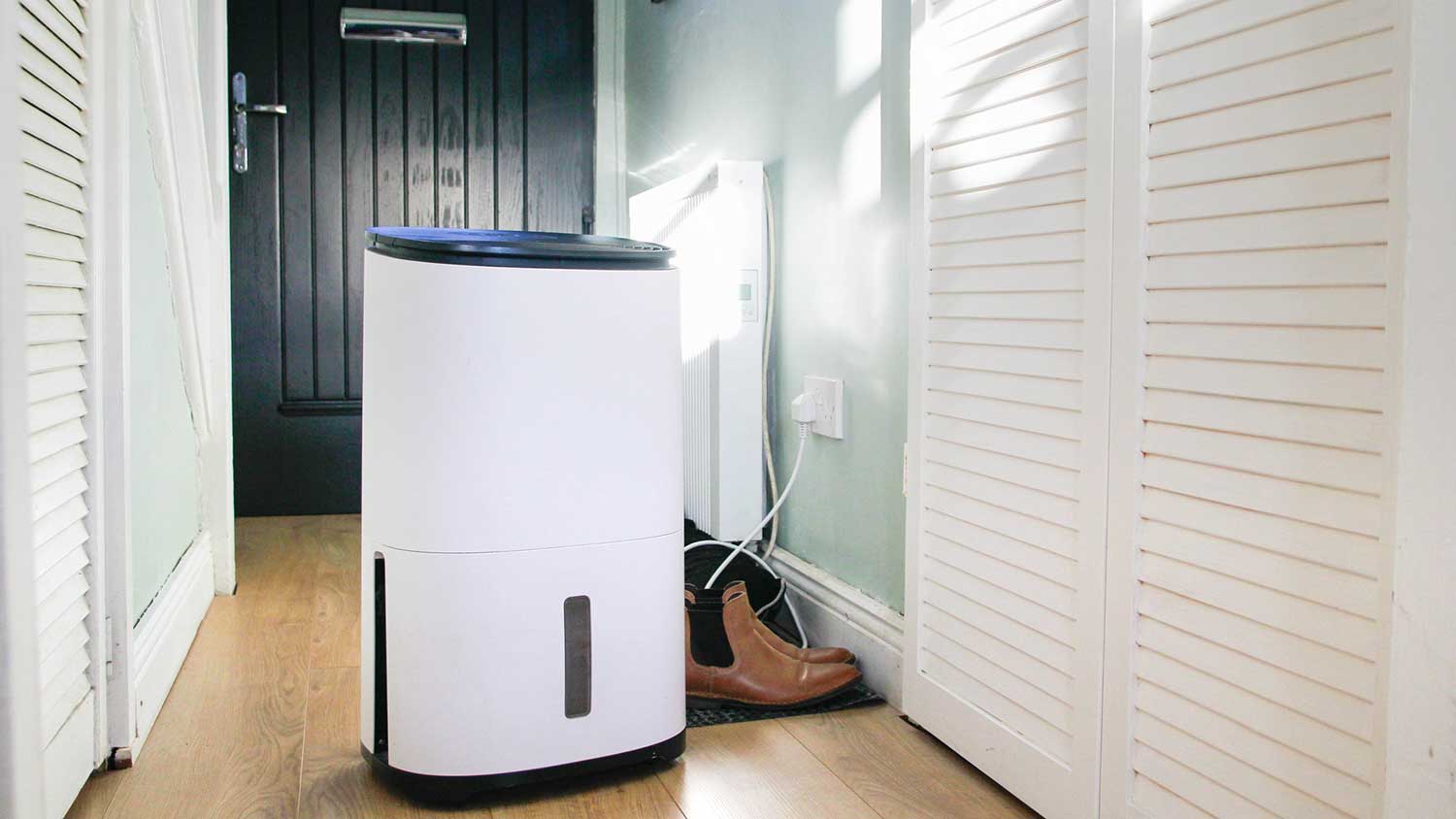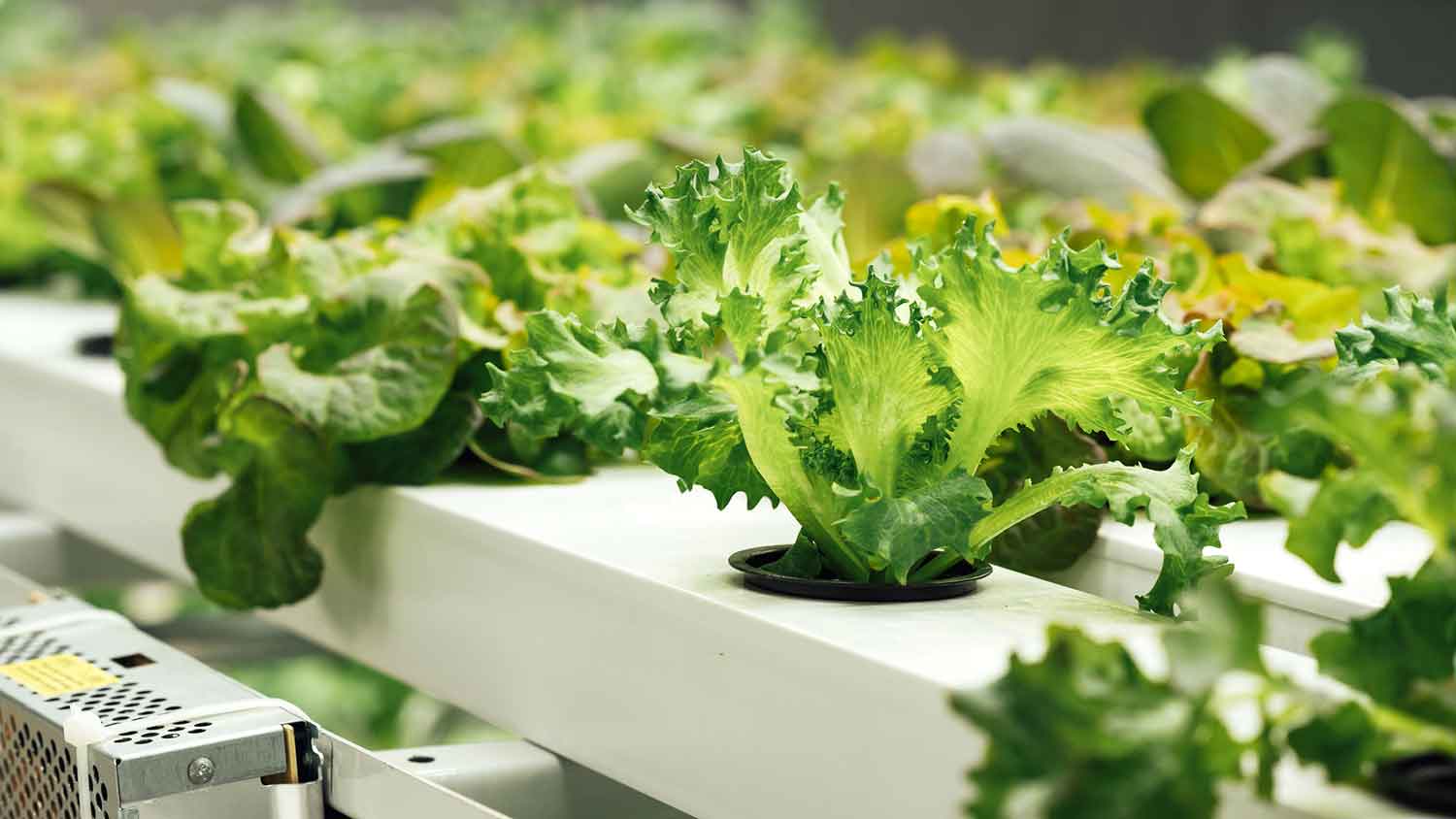What Does an HVAC Service Call Include? What to Expect
When the season transitions, your HVAC system may need some TLC and maintenance


Schedule a service call at least once annually or when you notice a problem.
Prepare for your HVAC service call by clearing the space around your unit and your vents.
Your service call should include a complete inspection of your heating/cooling system.
Use the written report you get after your call to make necessary HVAC repairs.
Wondering what your next HVAC service call will include? Getting regular HVAC services can make your home more efficient and comfortable, as well as extend the life of your HVAC equipment. In this guide, we’ll explain when to schedule an HVAC service call, what to expect, and how to prepare.
When Should You Schedule an HVAC Service Call?
Since HVAC service companies may get backed up during periods of high demand, it’s important to schedule your service call ahead of time. You should think about scheduling your visits before peak seasons, meaning the spring and fall are the best times to call for services.
Getting ahead of the changing season ensures that you’ll have a working heater when the cold months come around. For air conditioning systems, you should look into scheduling service in the spring, giving yourself time to get everything in order before heat waves roll in.
Proper HVAC maintenance is essential for your safety. A lack of regular professional maintenance can lead to carbon monoxide leaks, refrigerant leaks, or electrical malfunctions, which all pose a serious threat to your health and home.
It’s also important to know how often you should get HVAC service calls. In virtually all cases, you should schedule HVAC service calls at least once a year, or more often for aging or problematic systems. Do some research on the various HVAC companies near you and check out several reviews and quotes before you hire a technician.
What Does an HVAC Service Call Include?
During an HVAC service, you can expect your HVAC technician to check your system for signs of leaks, potential problems with electrical connections, and test thermostat settings and operations. Keep in mind that the season of your HVAC service call may impact the specific tasks completed. For example, winter HVAC checks may include testing of components like the heating elements, burners, pilot, thermocouple, and limit and safety controls.
Outside Procedure
Your HVAC professional will likely first check the outdoor equipment, which you may not have depending on the type of HVAC system you have. The outdoor equipment typically only includes the condenser for a central AC system. Your technician should do the following outside:
Check refrigerant levels
Inspect the fins for any debris accumulation
Lubricate the fan and other moving parts
Check electrical connections for loose or worn-down wires
Look for physical damage to the casing or internal components
Inside Procedure
A pre-season HVAC maintenance call will also feature an indoor evaluation of the system to ensure everything is functioning properly. Since most of your HVAc equipment is inside, the interior inspection typically includes checking several components and looking for potential issues.
Looking for Mold
An HVAC technician will check each A/C component for mold or mildew growth. They should check around visible HVAC ducts and baseboard heaters for condensation, water leaks, and mold growth. This is an important part of the evaluation since mold and mildew can cause potential health issues. The technician might include a camera inspection of the inside of your ducts as well, especially if you’ve had issues with poor indoor air quality.
Installing a New Filter
If necessary, the HVAC professional will recommend installing a new air filter, and most professionals will be able to do this work for you while they’re on site. On average, you should be changing your filter every two to three months, so this might not be necessary if you keep up with filter changes.
Changing the filter is important to ensure you maximize the efficiency of your A/C and heating systems, as well as to maintain clean air. On the flip side, if you don’t change a malfunctioning or clogged filter, the system will likely become less efficient over time.
Checking the Thermostat

During the service call, the technician will check the thermostat. They will ensure it’s working properly and is calibrated correctly. An improperly-calibrated thermostat can result in difficulty maintaining temperature in your living space. A thermostat can become uncalibrated when dirt accumulates inside or if it gets jostled.
If your thermostat isn’t set to COOL in the spring or HEAT in the fall, they will likely make the change for you.
Inspect Condensate Drain
You can expect your technician to inspect the condensate drain, which is the exit pathway for moisture that accumulates as air passes through the evaporator coil. This coil removes the humidity from the air and unloads it through the drain line, down to the exit pipe.
An HVAC professional will look for clogs and debris or dust accumulation in the condensate drain. This can cause water backup and ultimately damage the HVAC unit or the surrounding building materials if the drain pan fills up. They’ll use compressed air to clear the line if there is a clog.
Checking Radiators and Baseboards
If your HVAC system makes use of steam or hot water radiators or baseboards, your technician may inspect those for proper functionality as well. This may include bleeding the baseboards or radiators, as well as adjusting them to provide even heating throughout your home.
How to Prepare for the Service Call
There are a few things you should plan on doing before your HVAC technician arrives for routine maintenance. Following the steps below can help maximize the value your HVAC expert provides and can minimize the costs incurred for your maintenance call.
Be Specific About the Concern
Whether you’re scheduling your annual HVAC tune-up or calling for service because of a specific problem you’ve noticed, make sure to tell your technician before they begin their work. This can guide them toward a faster solution if there’s an issue. Some common HVAC system problems you might want to report include the following:
Warm air blowing from AC vents
Electric bills are higher than usual
Uneven heating or cooling throughout your home
Your AC or heater won’t turn on—usually an issue with your AC capacitor
You notice unusual noises coming from your HVAC equipment
You notice moldy or musty odors in your home or coming from the vents

Understand Your Warranty
If you have a newer HVAC system, be sure to check your warranty documentation to see if your unit is still under warranty and to see if the problem you’re experiencing is covered. This won’t apply if you’re having your technician in for routine service or a tune-up, but if there’s a problem with the actual equipment, you might not have to pay anything out of pocket for the technician to fix the issue.
Additionally, some HVAC warranties require that you keep up with maintenance and maintain documentation regarding repairs and routine service. If this is the case, make sure you keep any paperwork you get from your technician in case you have a problem in the future.
Give Space for Them to Do the Job
Finally, it’s a good idea to prepare your home so your technician has plenty of space to access your equipment. Trim any trees, bushes, or plants growing within a foot or two of your outdoor condenser, pull furniture away from vents, and clear a path to your utility room to make the inspection easier and faster.
Written Report and Service Guarantee
Usually, the technician will provide you with a written report of their work. This typically includes recommendations for any necessary repairs or necessary maintenance jobs, and it might include an estimate for the work from the same company. Depending on the recommendations, you might be able to save some time and travel fees by having the technician do the work while they’re on-site for the inspection.
In addition, the HVAC contractor will probably give you a service guarantee—this assures that they don’t anticipate a failure or breakdown within a specific period, provided your system was found to be in good working order.
Frequently Asked Questions
Most HVAC service calls include diagnostic fees, which could include checking on a specific issue you’re experiencing or running through a routine inspection checklist. If you called for a particular problem, the service call will also include an estimate to fix the issue, including materials and labor. Depending on your HVAC technician and the service you requested, you might also get a general inspection of your system components to ensure everything is working as intended.
Most HVAC companies charge a flat service call fee of between $75 and $150, which includes traveling to your home and inspecting your system to find the underlying problem. Keep in mind that these prices only include diagnostics and the actual repairs will usually be billed separately. If you’re calling for routine service, the service call will be included in your inspection and tune-up, with the total sitting around $150. Your prices could be a little higher if you have a very large home with multiple condensers and air handlers, as inspections and servicing take longer.
In most cases, you should hire a professional to carry out services on your HVAC system, as the components are complicated, expensive, and potentially dangerous to work with. However, there are a few things you can do on your own to keep your HVAC system in good condition, including changing your filters every three months, keeping the area around your outdoor condenser clear of debris and plant growth, making sure your or intakes aren’t blocked, and keeping an eye out for increased energy bills, strange noises, and unusual odors related to your equipment.





- Furnace Repair
- Air Conditioning Repair
- HVAC Repairs
- Furnace Installation
- Wood & Pellet Stove Repair
- Dehumidifier & Humidifier Repair
- Heat Pump Companies
- Swamp Cooler Repair
- Wood Stove Services
- HVAC Companies
- Commercial A/C Repair
- Geothermal Installation
- Air Conditioning Installation
- Boiler Repair
- 24 Hour Furnace Repair
- Geothermal Repair
- Heat Pump Repair
- Humidifier Installation
- Thermostat Repair
- Thermostat Installation
- Nest Installation
- Heating & Cooling
- Heating Repair
- Furnace Cleaning
- Furnace Tune-Up
- HVAC Technicians
- Subcontractors
- Furnace Maintenance
- Plumbing & Heating Companies
- Wood Stove Inspection
- Mini Split Installation
- Wall Heater Repair
- Duct Installers
- HVAC System Inspections: Everything You Need to Know
- How to Find and Hire the Best HVAC Technicians
- Are HVAC Maintenance Plans and Service Contracts Worth the Money?
- How to Evaluate HVAC Quotes: 7 Questions to Ask Your Technician
- Problems With Your AC Unit? Here’s When To Call HVAC Repair
- DIY Air Duct Cleaning Tools and How to Use Them
- Breathe Easy: 10 Tips for Improving Your Indoor Air Quality
- Here’s How Often to Change Furnace Filters and Other HVAC Filters
- What Is the Best Temperature to Set Your Air Conditioner to in the Summer?
- How Long Does Air Duct Cleaning Take? 4 Factors That Impact the Time Frame











